
15 minute read
Riback and Vahlteich
BY JESSICA CANLAS
Ruixuan Jiang, PharmD ’15, PhD ’19, is a self-confessed germophobe.
This posed a conundrum for her as a student interested in pursuing a career in healthcare—choosing a career path in the medical field where human contact isn’t required.
After considering her options, Jiang landed on her solution. Pharmacy. “I could be involved in medical healthcare, but I wouldn’t have to touch people,” she had reasoned. It seemed like the perfect fit.
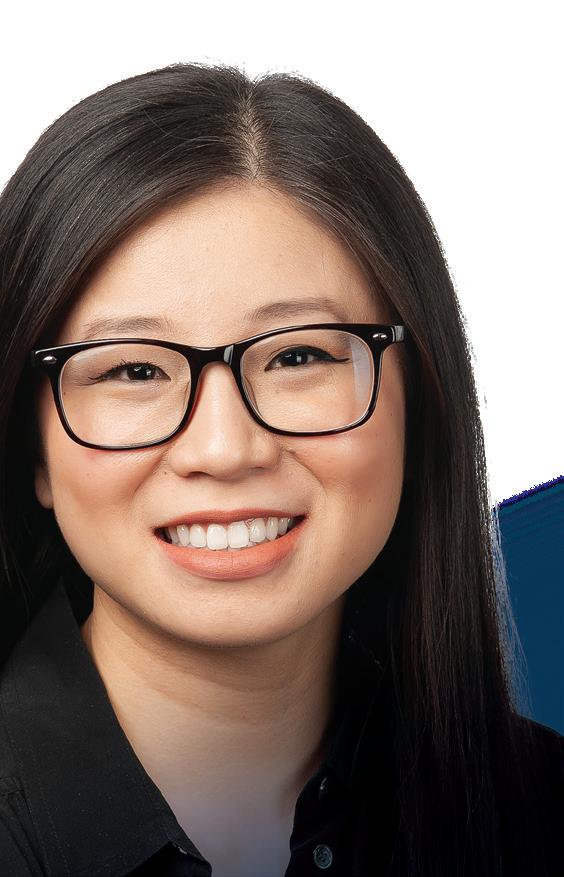
DR. RUIXUAN JIANG
Little did she know about a growing trend that would profoundly impact the profession’s status quo.
So, Jiang started college with the intent of one day becoming a pharmacist who would never have physical contact with a patient. By the time she entered pharmacy school, however, the now-common practice of administering flu shots was on the rise.
By this point, however, there was no turning back. Jiang was enjoying her clinical training in pharmacy and had discovered a synergy in her chosen field that suited her even better.
With a bachelor’s degree in biological sciences and chemistry, she’d had some previous experience in the lab that had piqued her interest in research. She had even considered UIC’s joint PharmD/PhD program to pursue that interest. After foregoing the basic science path, Jiang decided to join up with some extracurricular professional organizations to explore her options.
As a P1, Jiang participated in the Academy of Managed Care Pharmacy’s Pharmacy & Therapeutics (P&T) Competition. An annual event held nationally, pharmacy students compete in teams of four in an immersive experience designed to develop the skills necessary for effective formulary review and management.
“I was really enamored by the process and thought it would be something I’d like to stay involved with,” Jiang recalls. She eventually connected the dots between her P&T experience and the work of the Department of Pharmacy Systems, Outcomes, and Policy (PSOP), which led her to a new path.
“I realized I wanted to continue with my research route. So the Riback Fellowship was a great opportunity.”
The David J. Riback Research Predoctoral Fellowship is a 10-week summer program intended to provide opportunities for motivated PharmD students interested in research careers in biomedical sciences. The program is funded by an endowment created by Aaron E. Kaplan, BS Pharm ’47, in honor of his uncle David, who graduated from the college in 1927.
“It was recognized that there was a need for researchers who have both the PharmD and clinical background who could then apply that in a research setting,” explains Dean Glen Schumock. “[Riback] gives them the experience to decide if that’s something they want to move on with as a career.”
During the Riback application process, which opens in November, students must identify a faculty mentor and submit a letter of intent and an application, which includes, among other things, a research project proposal and letter of recommendation.
The selection process, which is overseen by Lindsey McQuade, director of research and graduate resources, involves a review committee of faculty members within the college. Applications are due in March, and fellows are notified by mid-April. According to McQuade, an average of six fellowships are awarded each year.
The fellowship term runs from May to August and provides a stipend of $5,000 for the student and an additional $1,000 for supplies. Fellows work on their projects with mentors in their labs or clinical practices and present final results at a minisymposium held in early August and again at the annual COP Research Day that following November.
Joanna Burdette, associate dean for research and graduate programs, believes that the research experience can be beneficial for PharmD students on a number of levels.
“Important basic science questions become more clear when you work in a lab,” she explains. “Questions like, ‘How did that drug get created? Why is it encapsulated? Why is it administered IV instead of orally?’ ”
Burdette also believes having an experience like Riback can give students an advantage in the job market by adding unique aspects of training—and a faculty mentor who can speak to that—to their credentials.
“Opportunities are more competitive if you want to stay in certain markets. If you want those jobs, you have to edge out a few people.” says Burdette. “A lot of PharmDs are realizing that there’s a place for them in the pharmaceutical industry, and if they have training in research, they’re more likely to be competitive for those jobs that are located in the places they want to live.”
Jiang, who became a 2013 Riback fellow in PSOP with the help of faculty mentor Simon Pickard, completed her PharmD and went on to earn her PhD in general health economics and outcomes research in that same department. Today, she is associate director of the Center for Observational and Real-World EvidenceOncology at Merck.
“Riback really cemented where I wanted to take my career,” Jiang recalls. “I really felt like I came into my own during that project, and I had a lot of experience to speak of during the later parts of my academic career.”
Riback fellow Brenton Bialik, PharmD ’14, was originally drawn to pharmacy by his experience with the independent pharmacy in his small Michigan hometown, but he soon realized that community pharmacy wasn’t the path for him. He’d had some bench research experience in college and, as a P1, approached Les Hanakahi, associate professor, seeking guidance in developing those skills while exploring the diverse range of options available to him in pharmacy school. The Riback Fellowship allowed him to join her in the lab investigating DNA repair pathways as potential targets for cancer-therapy drugs.
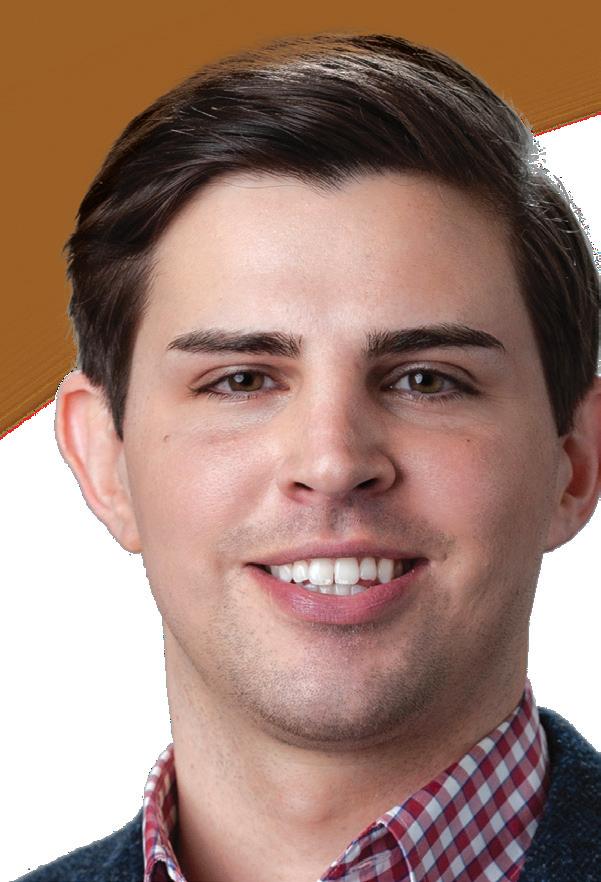
DR. BRENTON BIALIK
Besides fulfilling his interest in a well-rounded educational experience, Riback introduced Bialik to the strengths found in a cohesive, supportive work environment.
“Kudos to Dr. Hanakahi,” he says. “She really equipped her lab with great diversity of experience in a familylike atmosphere. She set up an environment where differences are not only encouraged, but are seen as advantageous.”
Bialik leveraged those experiences to forge his own career path and now works as assistant scientific director of medical affairs immunology in cross-franchise and biotherapeutics at AbbVie in suburban Chicago.
“I wanted to know a lot about one thing and excel in one area—that’s what drew me to research,” he recalls. “In the work we do now, we educate the scientific community as a whole on a very specific target. I get to be an expert in a narrow area, but have widespread impact.”
Shilpa Paul, PharmD ’12, was attracted to research for similar reasons. She was introduced to the Riback Fellowship by happenstance while working late in the computer lab. Fellows were presenting their work, and she was amazed at what pharmacy students and researchers were doing.
“I thought that I would love to apply my knowledge and actually put work out there that could be useful, clinically, to the world,” she recalls. “I vividly remember thinking, ‘I want one of my posters to be here one day to be able to talk about my work.’ ”
Paul, who had no previous research experience, investigated Riback and paired with Professor Edith Nutescu.
“She took me under her wing and taught me through the process,” says Paul, who believes her experience prepared her for residency and, eventually, writing a grant for Pfizer that got accepted.
“With a program like Riback, you get to work with true researchers who help you put out impactful work,” Paul says. “It increases the excellence of the experience and the knowledge you gain at the college.
“I had an experience that I got to make use of in residency, that, to this day, I still use.”
Paul, who entered pharmacy school with a strong desire to be on the front line of patient care, is now a clinical pharmacy specialist at MD Anderson Cancer Center in Houston.
One of the inaugural Riback fellows in 2009, Jin Han, PharmD ’12, came to UIC with a PhD in immunology and an interest in providing direct patient care. He was hoping to be able to flex his research muscles while learning the ins and outs of clinical practice. Riback affirmed that he could do both in a complementary way.
“When I was a pure researcher, I was doing research just for the sake of research,” Han recalls. “But after I spent a year in pharmacy school, I felt some research questions could be really helpful in the clinical field. That’s the beauty of doing research. In the end, if we find something interesting, we can apply that knowledge back to patient care.
“That’s the ultimate goal, to make our research relevant.”
As a student, Han was mentored by Douglas Thomas, associate professor in the Department of Pharmaceutical Sciences, on an investigation of nitric oxide-driven resistance to chemotherapeutic drugs. Today, the two are colleagues as Han now holds a position as associate professor in the Department of Pharmacy Practice.
Thomas, who’s been a member of UIC’s faculty since 2007, continues to work in cancer research and has himself benefited from another program designed to support research at the College of Pharmacy—the Vahlteich Award.
Established in 1993, the Vahlteich Research Scholar Award commemorates Hans W. Vahlteich, a research chemist who earned his Graduate in Pharmacy (PhG) and Pharmaceutical Chemist (PhC) degrees from the college in 1917 and 1918. Vahlteich spent most of his career at Best Foods, Inc., where he patented work that led to the development and public acceptance of commercial margarine. The award supports research by early-career, tenure-track College of Pharmacy faculty members and is financed by income generated from the Hans and Ella McCollum Vahlteich Endowment Fund.
“When young faculty are getting started, the hardest thing about getting a grant is writing a grant,” says McQuade. “Grant reviewers want to know that this proposal is going to be successful, so they need to see some sort of starting data.”
The Vahlteich Award can help early-career researchers build their programs, hire students, and put together useful data to write a successful grant, she explains. In fact, the application process itself, which includes a letter of intent, budget proposal, specific aims meeting, and a review panel composed of internal and external experts, is designed to be analogous to the grant review process at the National Institutes of Health. Of the 36 Vahlteich recipients prior to the 2019–20 giving cycle, 75 percent have gone on to receive NIH funding.
According to Burdette, one of the aspects of the Vahlteich process that may be even more valuable to a junior investigator than the actual money is the feedback they receive from the review panel.
Laura Sanchez, former associate professor in pharmaceutical sciences, found this particularly beneficial when she reapplied for Vahlteich after not being selected for funding initially. She was finally awarded in 2018 for her project titled “Dissecting Host-Microbe Chemical Communication in Pathogenic Relationships.”
Sanchez saw the Vahlteich Award as an excellent opportunity for securing preliminary funding for a speculative project like hers where “there’s not a wealth of existing data to show whether this is or isn’t going to work.” Subsequently, Vahlteich allowed her the freedom to pursue data avenues she would not have been able to explore, and the work conducted by the student she hired is now being used to apply for larger funding.
“Even with internal funding [like Vahlteich], when granting agencies see that someone has taken a chance on you, that can help leverage a lot of other things,” explains Sanchez. “For me, Vahlteich has opened other doors.”
The award jump-started Greg Calip’s project, “Commonly Used Medications and Multiple Myeloma Risk,” during his first year as assistant professor at the college in 2015. A 2008 graduate of the PharmD program, Calip says the Vahlteich Award gave him “the opportunity to make things happen early on. It really created the early momentum that I needed.”
Since then, Calip, whose home department is PSOP, has since been awarded two NIH grants and has used that initial data funded by Vahlteich for more than 10 publications.
“It was something that I could just keep building on, which was great.”
Thomas also went on to subsequently receive NIH funding after his initial Vahlteich Award. But, more recently, when those vital funds began to dwindle, he was grateful to benefit from a newer support mechanism provided by the Vahlteich Endowment, its bridge funding.
“One of the things we started to see is that some investigators would lose funding for a period of time,” explains Burdette. “We saw NIH cutting budgets, and it was tough for some people to get re-funded.”
With Vahlteich bridge funding, Thomas was able to maintain lab operations, continue conducting research—and have peace of mind—while seeking more funding.
“Your lab is like a small business,” explains Thomas. “Your products are research and data. You have employees. It’s not just your career at stake. You have students counting on you—there’s a bigger picture.
“If you start running out of money, you can’t keep the business afloat.”
Besides the practical aspect of the Vahlteich Award, Thomas is grateful for the internal support.
“It’s an affirmation that the college is willing to invest in you, that they think what you’re doing is relevant and believe you’re going to be successful and eventually get funded. In that aspect, it gives you confidence to know that you do have support.”
Thanks to the beneficence of generous donors, future healthcare professionals as well as established researchers can find support at the College of Pharmacy to make discoveries about themselves and the world around them.
“The Riback program is about opening the eyes of students to the potential of a research career and creating a pipeline of future research scientists that is much needed,” says Schumock. “Vahlteich is ultimately about making our faculty successful, elevating the quality of research they are able to conduct—and thus promote the excellence of our research enterprise.”
How The Vahlteich Award Has Impacted My Research
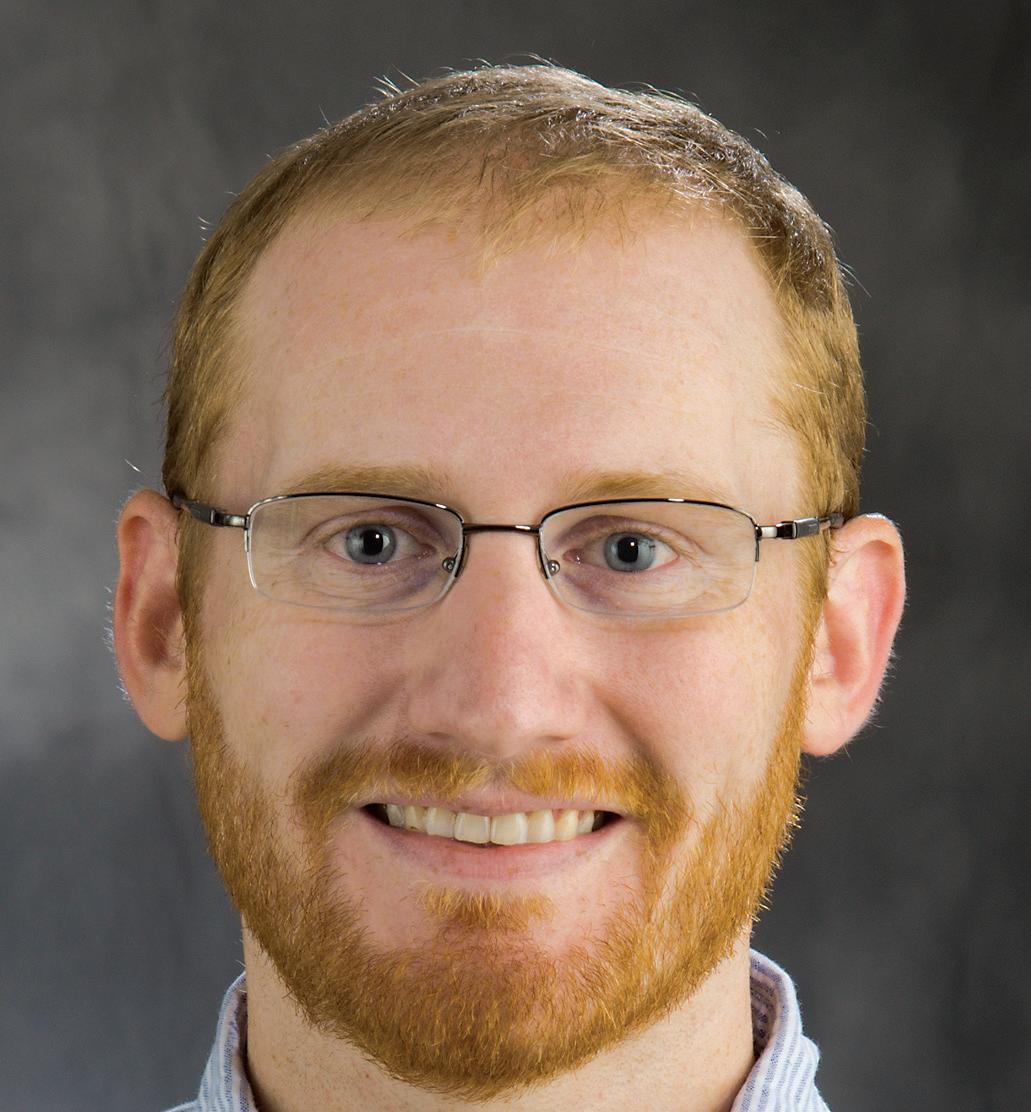
DR. ANDREW RILEY / 2019 Biasing Partial MOR Agonists to Improve Opioid Substitution Therapy
This was the first external injection of money for my lab. It allowed me to set up and get going on studies I may have had to wait on. But with unrestricted funds, I was able to get moving on some of the chemistry. Working with collaborators, I was able to have results for them to move forward with as well. It’s been the catalyst for everything that my lab’s been able to do up until now.
Vahlteich has also enabled me as a very young scientist to explore my ability to write grants, but also to be creative in doing so. I don’t necessarily have to propose things that I know that are going to work. I don’t necessarily have to have preliminary data. Vahlteich allows me to be creative. Creativity in science ultimately leads to excellence. If I just keep doing things that have been done before, I’m never going to raise the bar or advance the field.
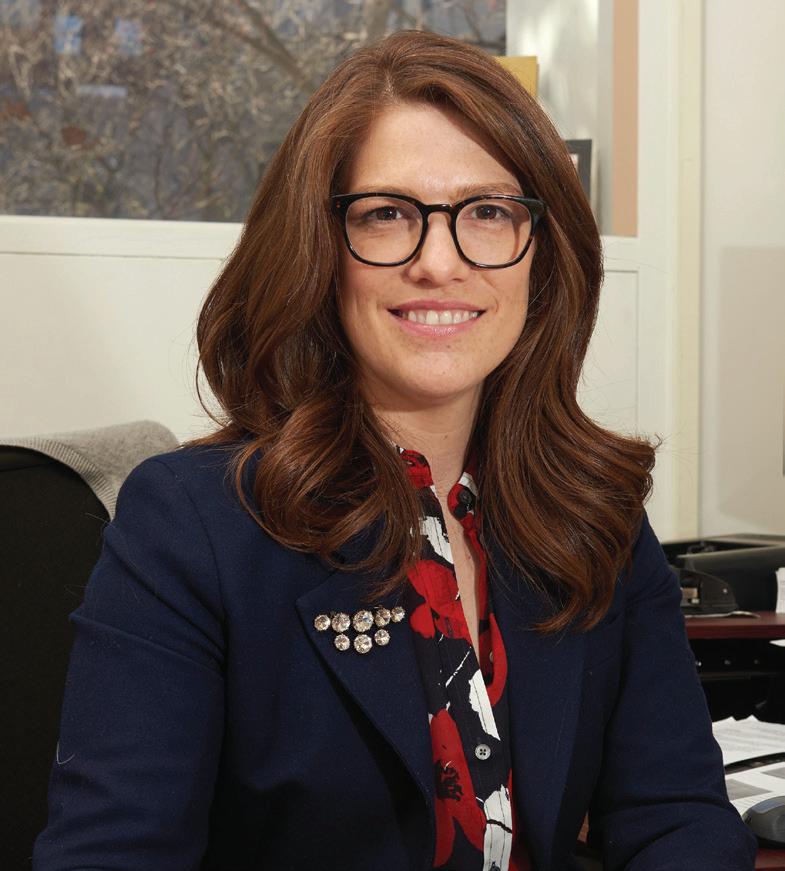
DR. JENNIE JARRETT / 2019 Entrustable Professional Activities Assessment within Experiential Curricula: A Primer for Evaluation
One of the challenges in pharmacy is the limited funding for educational research. Vahlteich allowed me to begin building a unique mechanism to ask questions and develop answers that could support our curriculum and curricula across the nation, elevating pharmacy education and, ultimately, building the best pharmacists.
Because of the competitive nature of this award, it pushed me to improve my grant writing and not only my writing, but to consider what methodologies I was using. Were they innovative and novel? Do I have an opportunity to make an impact?
I also appreciated the ability of the Vahlteich Award in fostering mentorship in the college and university. As a new faculty member who didn’t train at UIC, I didn’t have a ton of strong relationships when I got here. The Vahlteich was a great way for me to build relationships within the college and find strong mentors to support what I was doing and continuously challenge me. That, in itself, enhances excellence in the college through a focus on mentored research and collaboration.
WHAT I LEARNED FROM MY RIBACK FELLOWSHIP
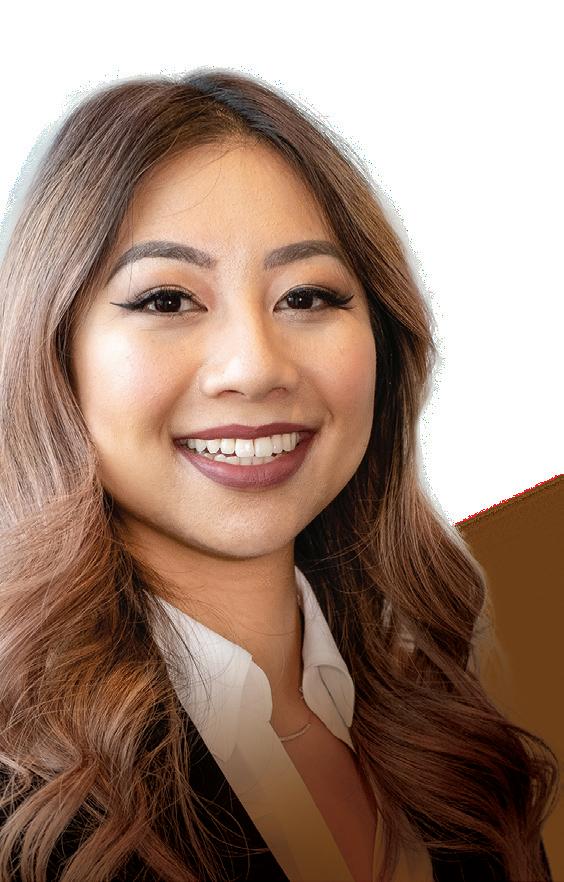
MICHELLE LEE
MICHELLE LEE · P4 / 2019
Activity of Aztreonam in Combination with Ceftazidime-Avibactam Against Metallo- and Serineß-Lactamase-Producing Pseudomonas aeruginosa.
Riback has solidified what I want to do. Being able to take the first stab at writing a publication, the manuscript for this research, solidifying my research skills that I’ve developed over past few years, presenting my poster at the ACCP annual meeting last year—all that’s been really helpful in building my confidence as I move forward in my career.
I think, if I didn’t have the experience with research and having to read publications, I wouldn’t really appreciate the work that goes into it. It’s just really rewarding, being able to find these questions that you’re curious about and being able to do the work to figure out what it really means.
Research is really important in the PharmD program. I think it helps future pharmacists develop a better sense of reading new trials and understand how effective a medication is for my patient with this disease state. It allows us to become better pharmacists and, ultimately, provide better patient care.
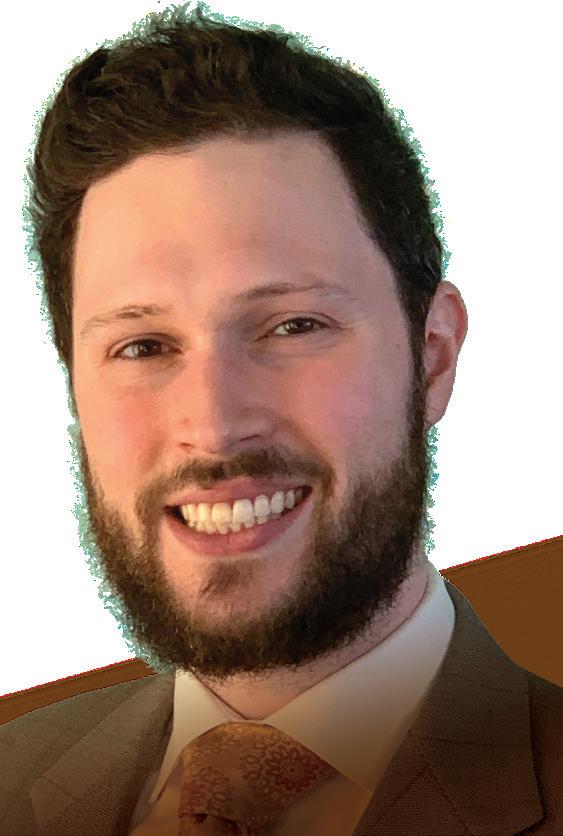
NICHOLAS MOFFETT
NICHOLAS MOFFETT · P4 / 2019
Cofactor Requirements of Etoposide Hypersensitive Human Top26 Mutant Proteins.
Working in research teaches you a number of skills you need, generally speaking, that are applicable in most careers. Skills like the ability lay out a question, how to plan and organize the steps you will take to answer that question. Another thing it also taught me is critical thinking. There were multiple times through my project where I struggled to identify what went wrong and why I didn’t get the results I anticipated. And then interpret the results that I did receive. I had a lot more failed experiments than successful ones. It was frustrating. So I learned the importance of having patience with myself.
I also came to realize that, one day, I’m going to get to a point where people are going to rely on me to be the expert. It’s important for pharmacists to be able to critically think about the scenario beyond the surface level. Why are they asking? What are the results and outcomes so far? What can I do to go above and beyond?








